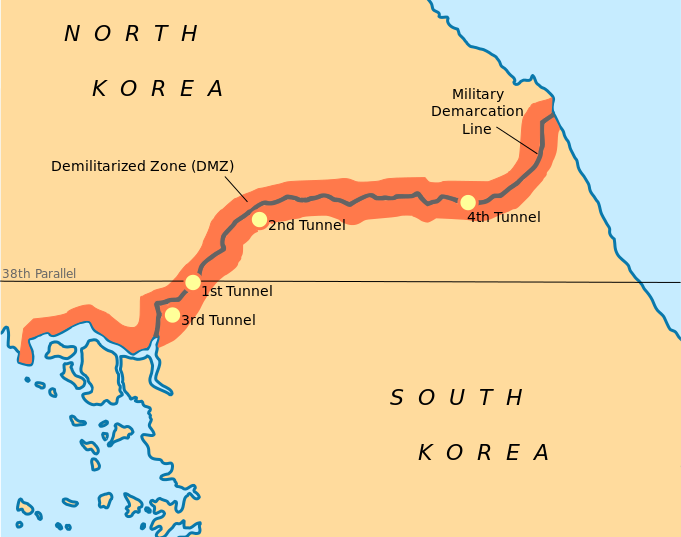Nuclear Weapons 269 - The North Korean Situation - Part Three of Three Parts
Part Three of Three Parts (Please read Part One and Part Two first)
It is true that China has great influence over N.K. but China is fearful of exerting too much pressure because it could destabilize the current regime. Any major international war, civil war or breakdown in N.K. would result in a flood of refugees over the Chinese border. China would simply not be able to deal with millions of fleeing North Koreans and this could destabilize China with reverberations across the whole world. And, even if regime change could be accomplished without such disastrous consequences, China does not want to risk a unified Korean Peninsula aligned with the U.S. right on its border. So, ultimately, more pressure can and should be applied to N.K. but China may be reluctant to pursue that path.
It would be best for the world, of course, if a peaceful solution could be worked out with N.K. N.K. is very poor country. If only N.K. could be persuaded to give up nuclear weapons, the rest of the world could come to its aid with aid and trade programs. Sadly, the U.S. and other countries have been talking to N.K. both publicly and privately since the Armistice Agreement that suspended the Korean War. The Korean War never really ended. The U.S. and other nations have repeatedly convened negotiations with N.K. but N.K. has shown no interest in getting rid of its nuclear weapons. Instead, it is demanding to be accepted as a nuclear-armed nation and it wants a real end to the Korean War. A final resolution to the war might include a requirement that all U.S. forces and weapons be removed from the Korean Peninsula. Even if N.K. gave up its nuclear weapons, it would probably still threaten S.K. with conventional weapons and forces. And the U.S. military has no intention of leaving the Peninsula.
It has been suggested that perhaps negotiations could begin with agreements for N.K. to suspend tests of nuclear warheads and missiles in return for desperately needed humanitarian aid. Unfortunately, N.K. has shown little interest in such and approach. Even if N.K. was interested in trading weapons tests for humanitarian aid, N.K. has shown itself to be untrustworthy when such arrangements have been tried in the past.
“Zugzwang” is a term used in chess. It means that when it is your turn to move and you have to move, there is nothing that you can do that will improve your situation. The U.S. appears to be facing such a problem in N.K. While there is no lack of options when it comes to dealing with N.K., it is not clear that any of them will lead to the desired outcome of a non-nuclear N.K. For the time being, the U.S. will probably continue to push for isolation of N.K. from the world community of nations. The U.S. military will continue its presence in and around the Korean Peninsula. And some sort of sanctions and financial pressures will be applied against N.K.
As time passes, N.K. will continue to work on developing and refining an ICBM that can reliably carry a nuclear warhead to targets in the continental U.S. If the U.S. attacks N.K. to cripple its nuclear weapons program or N.K. suffers regime change or social collapse, there will still be the problem of insuring that all of N.K. existing nuclear weapons are accounted for. This will be an extremely difficult task in a war-torn or collapsed N.K. and must be part of any planning for future conflict in or with N.K.
Korean DMZ:
